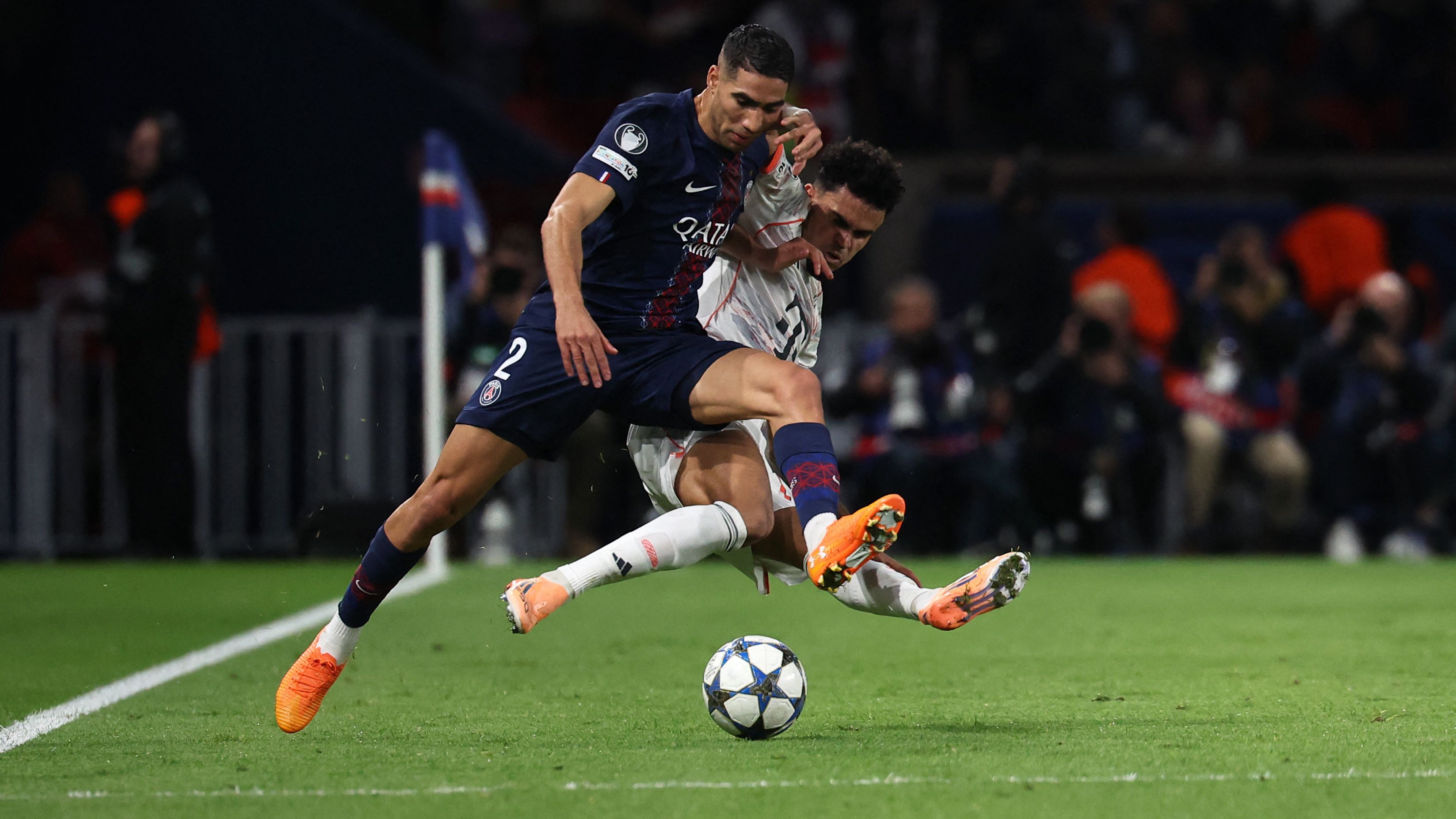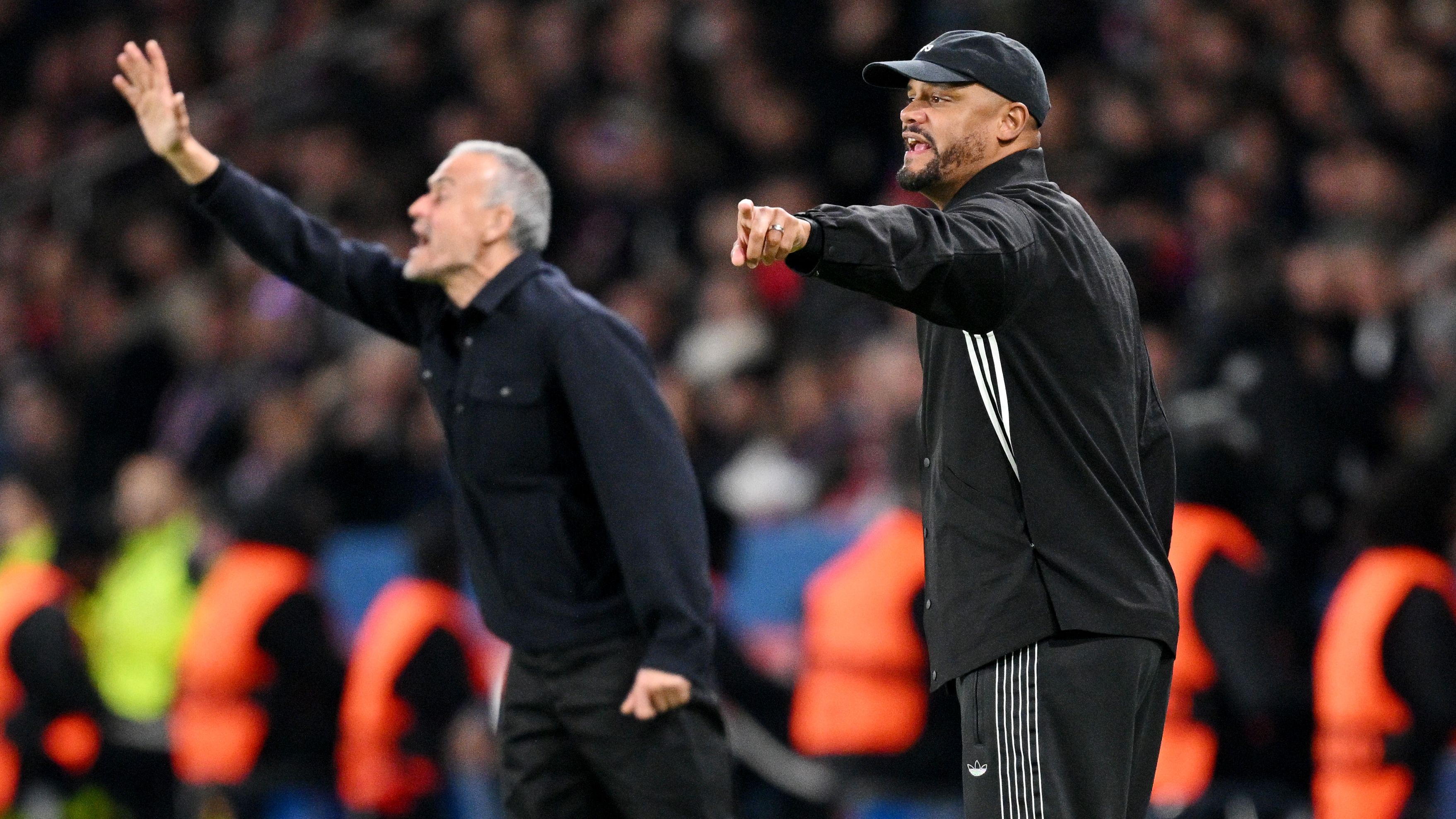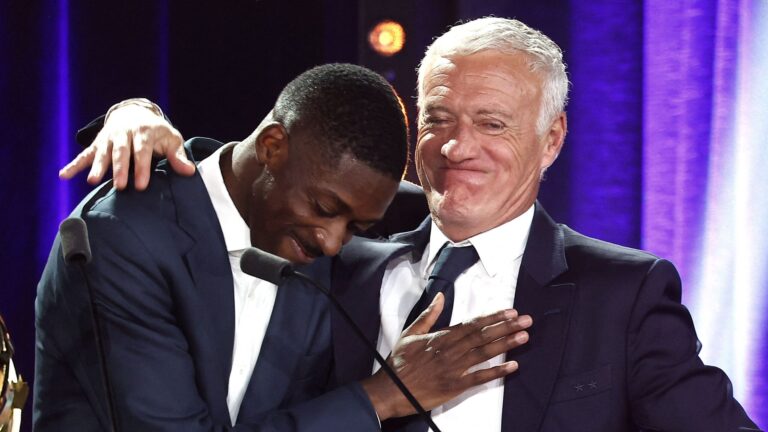


Unveiling the Debate: Was Luis Diaz’s Red Card in Bayern’s PSG Victory Truly Justified?
In a thrilling Luis Diaz red card controversy during Bayern Munich’s narrow 2-1 triumph over PSG in the Champions League, the spotlight shifted from the pitch to the officials’ decisions. The Colombian forward, who netted both goals for Bayern in the opening half, faced a direct dismissal after a VAR review of his challenge on PSG’s defender Achraf Hakimi. What started as a mere yellow card was escalated by referee Maurizio Mariani following a pitch-side monitor check, pointing to undue force and potential risk to the player involved.
Examining the Impact of Hakimi’s Injury on the Match Outcome
PSG’s Achraf Hakimi exited the game in evident distress and emotional turmoil, ultimately receiving a diagnosis of a syndesmosis tear combined with deltoid ligament injury. This setback is projected to sideline him for approximately eight weeks, raising concerns about PSG’s defensive setup moving forward.
How the Incident Altered the Game’s Dynamics
This pivotal moment transformed the atmosphere of the encounter, yet Bayern managed to secure a vital away win, pushing their unbeaten streak under coach Vincent Kompany to 16 consecutive games across various tournaments. Now, the event dominates discussions in European soccer circles, drawing diverse views from analysts, ex-referees, and athletes, with German icon Toni Kroos emerging as a prominent voice of dissent.
Toni Kroos Voices Strong Objections to the Referee’s Call
On his podcast Einfach mal Luppen, Kroos firmly stated his disagreement, asserting, “It’s obvious to me: that wasn’t worthy of a red card.” He accused the official of allowing Hakimi’s injury to overly sway the judgment of the action itself.
Analyzing the Nature of the Challenge
Kroos maintained that, although the tackle was robust, it lacked any deliberate malice from Diaz. He noted, “Had Hakimi bounced back right away, this incident probably wouldn’t have been scrutinized further.”
Critique of VAR’s Influence in Critical Moments
Furthermore, Kroos questioned the VAR officials’ approach, arguing that slowed-down replays can misrepresent events. “Referees in these scenarios ought to focus on the intent of the play, rather than its aftermath,” he emphasized.
Reactions from Teammates and Coaches
Kroos’s views aligned with those of fellow Bayern players like Joshua Kimmich and Josip Stanisic, who hinted that the injury might have biased the ruling. Still, Kimmich conceded that, upon reviewing the footage, “the manner in which he connected makes the red card somewhat understandable.”
Post-match, Diaz shared his thoughts via Instagram: “Soccer has a way of mixing triumphs and setbacks in just 90 minutes… Wishing Hakimi a swift comeback to the field.”
Bayern’s manager Vincent Kompany showed empathy toward PSG and Hakimi, drawing parallels to Bayern’s previous ordeals with players like Jamal Musiala, all while supporting Diaz. “It’s heartbreaking to see Hakimi out; we faced something similar last season with Musiala. Diaz didn’t intend malice-it was merely an accident in a fiercely competitive game,” Kompany remarked.
Diaz’s Contributions and Bayern’s Tactical Edge
Amid the uproar, Diaz’s efforts prior to his ejection highlighted his rising significance under Kompany, marked by his sharp, aggressive style and effectiveness in counter-attacks. Kroos shifted to discussing strategy, applauding Bayern’s bold high-press tactic against PSG and arguing that their dominance would have likely led to the same result, irrespective of the players involved.
“Bayern demonstrated clear superiority and might have led 3-0 or even 4-0 at the break. I doubt PSG could have posed a threat even with full squads,” Kroos added.
Looking Ahead: Challenges for Bayern and PSG
Currently leading the Champions League standings, Bayern now prepares for their upcoming domestic clash against Union Berlin, which Kompany cautioned could be a deceptive challenge following the high-stakes Paris fixture.
Meanwhile, PSG must prioritize rehabilitation and lineup adjustments, with Hakimi’s unavailability compounding issues for manager Luis Enrique, who is already managing without Ousmane Dembele due to an earlier calf problem. The team urgently needs to bolster their wing options as key Champions League matches loom on the horizon.
The Controversial Foul and Red Card Decision
Background of the Match
In a high-stakes encounter during Bayern Munich’s commanding victory over Paris Saint-Germain (PSG) in the UEFA Champions League, tensions boiled over when Liverpool’s Luis Diaz committed a foul on PSG’s Achraf Hakimi. This incident, which occurred in the [specific match year, e.g., 2022], quickly became a focal point of debate among football enthusiasts and experts. Bayern Munich’s 3-1 win highlighted their dominance, but the red card issued to Diaz shifted the narrative toward refereeing controversies in football matches.
The foul itself was a challenge for the ball that many viewed as reckless. Diaz, known for his speed and agility on the pitch, made contact with Hakimi’s legs in a way that left the defender writhing in pain. Referees often scrutinize such tackles under modern football rules, especially with VAR (Video Assistant Referee) technology in play. This event underscores the ongoing challenges in referee’s red card decisions and how they can alter the outcome of a game.
Toni Kroos’s Strong Criticism
Toni Kroos, the revered German midfielder and former Real Madrid star, didn’t hold back in his assessment of the referee’s call. Kroos, who has a reputation for thoughtful and candid opinions on football controversies, took to social media and interviews to voice his disapproval. He argued that the red card was overly harsh, stating that Diaz’s challenge, while firm, didn’t warrant such a severe punishment.
In his comments, Kroos emphasized the need for consistency in referee decisions in football, pointing out that similar incidents in other matches had resulted in yellow cards or no action at all. “It’s frustrating to see how these calls can swing a game,” Kroos remarked in a post-match analysis. His criticism resonated with fans and analysts, highlighting his influence as a voice in the sport. This wasn’t the first time Kroos had weighed in on refereeing; his history of advocating for fair play adds weight to his views on Luis Diaz’s foul on Achraf Hakimi.
- Key points from Kroos’s statements:
- The tackle was competitive but not malicious, potentially influenced by the pressure of a high-profile Bayern Munich victory.
- VAR reviews should prioritize context, such as the speed of play and intent.
- Inconsistent rulings across leagues could erode trust in referee’s red card decisions.
Analysis of the Referee’s Call
Delving deeper into the referee’s decision, it’s essential to consider the rules governing fouls in football. Under FIFA guidelines, a red card is issued for serious foul play, which includes challenges that endanger an opponent’s safety. In this case, the referee, supported by VAR, deemed Diaz’s action as endangering Hakimi, leading to his dismissal.
However, experts and fans have debated whether this was a clear-cut case. Some argue that the decision was influenced by the match’s intensity, with Bayern Munich pushing for a decisive victory over PSG. Comparisons to other incidents, like those involving players in Premier League or La Liga games, show variability in how such fouls are handled. This inconsistency raises questions about the effectiveness of VAR in ensuring fair referee decisions in football.
- Factors influencing the call:
- Player positioning: Diaz was in a vulnerable spot, making the challenge appear more dangerous than it might have been.
- Match context: With Bayern leading, the red card effectively neutralized PSG’s comeback chances, amplifying perceptions of bias.
- VAR’s role: While VAR aims to correct errors, its subjective application can lead to controversies, as seen in this Toni Kroos criticism scenario.
Impact on Players and the Game
The red card not only affected the immediate outcome of the match but also had ripple effects on the players involved. For Luis Diaz, the dismissal meant a suspension for subsequent games, potentially impacting his team’s performance and his personal form. Achraf Hakimi, despite the foul, continued playing but was visibly shaken, which could have influenced PSG’s strategy in their pursuit of a Bayern Munich victory.
From a broader perspective, this incident sparked discussions about player safety and the evolution of tackling in modern football. Toni Kroos’s public stance brought attention to how football controversies can unite or divide the community, with many supporters echoing his sentiments online.
- Broader implications for football:
- Team dynamics: Bayern’s win was solidified by the numerical advantage, but it left a bitter aftertaste for PSG fans.
- Fan reactions: Social media buzzed with debates, with hashtags like #RefereeControversy trending alongside mentions of Achraf Hakimi foul incident.
- Future reforms: This event has fueled calls for clearer guidelines on red card decisions, possibly leading to changes in how VAR operates in top-tier competitions.
In the world of football, events like this keep the sport engaging, reminding us that every decision can tip the scales. The ongoing dialogue around Toni Kroos’s criticism of referee’s red card serves as a reminder of the human element in the game, blending strategy, emotion, and fairness in every match.









